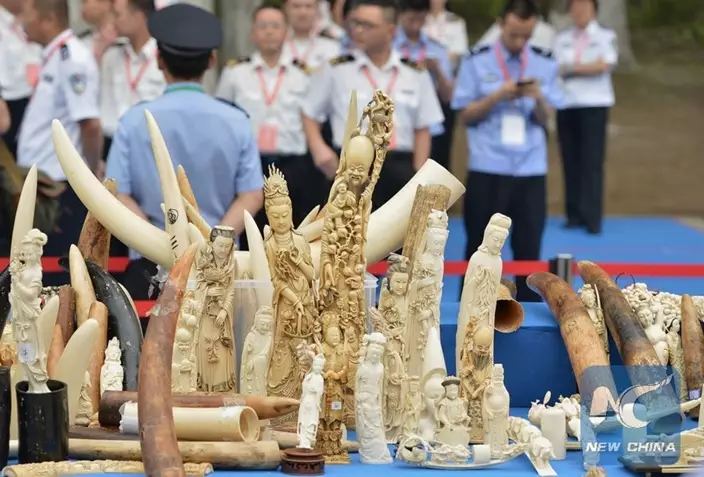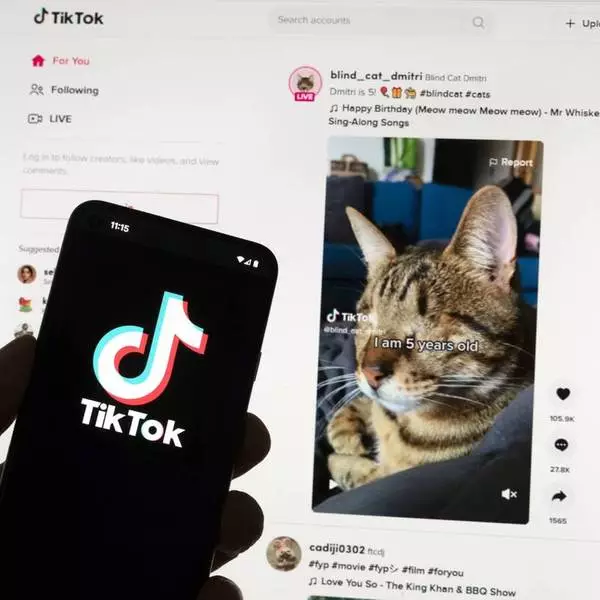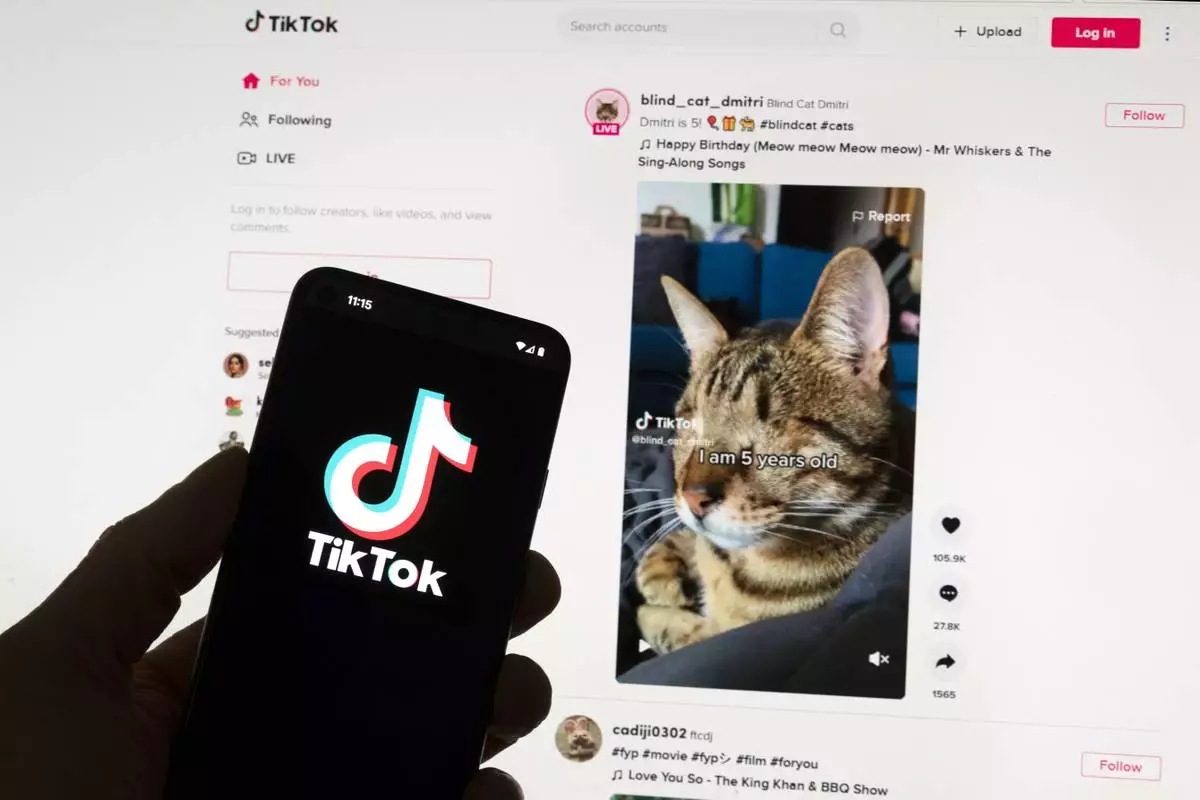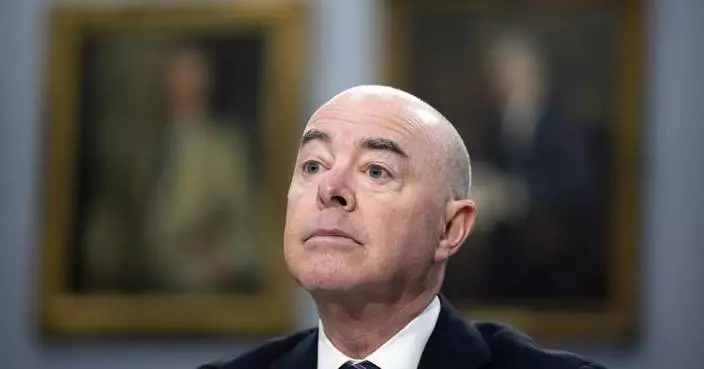A recent report on ivory demand in China has revealed that nearly 55 percent of previous ivory buyers have stopped purchasing ivory products, keeping in view the forthcoming ban.

Domestic trade of ivory is likely to be banned by the end of this year.
The report "Demand under the Ban – China Ivory Consumption Research" released by the World Wildlife Fund (WWF) is based on a survey of 15 cities across the country which measured the impact of the forthcoming ban on buyers.
The report claims that nearly 33 percent of the buyers have ceased purchasing ivory in the past three years.
The survey classified cities into three tiers to understand the ivory purchasing habit of customers after the ban was announced.
"Cities in tier one were the most active ivory markets, cities in tier two were moderately active markets, and cities in tier three were the least active markets," the report said.

The researchers were surprised to find that the tendency to buy ivory shifted massively from metropolitan first-tier cities, like Beijing, Guangzhou, Shanghai, and Chengdu to third-tier cities.
The survey also found that active consumers of ivory reside in Shenzhen, Nanning, Chongqing, Nanjing, and Jinan.
Around 19 percent of respondents identify as a "die-hard buyer." The most persistent buyers are more likely females living in third-tier cities with a full-time job and medium-high income.
"The ivory purchase is moving from metropolitan first-tier cities to provincial third-tier cities, due to a growing conversion rate of consumers who have never bought ivory into repeat buyers over the past three years," the researchers said.
Around six in 10 "die-hard buyers" say they are likely to reconsider their purchases after the implementation of the ban.

The announcement of the ivory ban seems to also have an impact. Before hearing of the ban, 43 percent of those surveyed said they intend to purchase ivory in the future. After hearing of the ban, that number dropped to 18 percent.
However, awareness about the forthcoming ban was shallow among ivory buyers. Only 19 percent of the participants recalled the ban. After being prompted about it, barely 46 percent of them remembered having heard of the pending ban.
Researchers in the report highlighted that artistic value, uniqueness, cultural heritage and gifting are the primary drivers behind the purchase of ivory-related products.
China ivory ban likely to reduce poaching of African elephants
In 2015 Chinese President Xi Jinping and the then US President Barack Obama jointly made a historic announcement that the two countries would entirely ban ivory trade in their domestic markets.
In China, ivory demand originates from status and products like chopsticks and intricately designed jewelry have been part of the culture. Meanwhile in the US, the ivory trade is prominently dominated by trophies from legal sport hunting.
According to the Convention on International Trade in Endangered Species of Wild Fauna and Flora (CITES), more than 30,000 elephants are killed by poachers each year for their tusks. To curb poaching, CITES banned international trade in ivory in 1990.
But many places, like the Chinese mainland, Hong Kong Special Administrative Region and the US, have allowed domestic sales of ivory.
"China’s complete ban on ivory trade will reduce poaching of elephants. We hope other countries implement similar bans to end ivory trade in the domestic market," WWF maintained.
The House has renewed its push on legislation that would ban TikTok if its Beijing-based parent company doesn’t divest from the popular social media platform, escalating the fight over the hot-button issue.
The TikTok legislation, which was included in a package of bills that would send aid to Ukraine and Israel, could become law as soon as next week if Congress moves quickly.
Here’s what you need to know:
In March, the House passed legislation that would require ByteDance, TikTok’s parent, to sell the platform within six months, or face a ban in the United States.
But some senators, including the Democratic Senate Commerce Committee Chairwoman Maria Cantwell, had expressed concerns that the six-month deadline would be too short to carry out a complex deal that could be worth tens of billions of dollars. Following negotiations with the Senate on the issue, the House included a modified version of the legislation in the foreign aid package as leaders worked to win over votes for those bills.
The revised legislation would give ByteDance nine months to sell TikTok, and a possible three-month extension if a sale was in progress. The bill would also bar the company from controlling TikTok’s secret sauce: the algorithm that feeds users videos based off their interests.
Cantwell, who has powers over the TikTok bill in the Senate, had previously expressed concerns that it could stand to legal scrutiny. However, she said in a statement Wednesday evening that she supports the updated legislation.
Lawmakers from both parties - as well as law enforcement and intelligence officials - have long expressed concerns that Chinese authorities could force ByteDance to hand over data on the 170 million Americans who use TikTok. The worry stems from a set of Chinese national security laws that compel organizations to assist with intelligence gathering - which ByteDance would likely be subject to – and other far-reaching ways the country’s authoritarian government exercises control.
Opponents of the bill, though, counter that the Chinese government could easily get information on Americans in other ways, including through commercial data brokers that sell or rent personal information.
Lawmakers and some administration officials have also expressed concerns that China could - potentially – direct or influence ByteDance to suppress or boost TikTok content that are favorable to its interests. TikTok, for its part, has denied assertions that it could be used as a tool of the Chinese government. The company has also said it has never shared U.S. user data with Chinese authorities and won’t do so if it's asked.
In early March, Rep. Mike Gallagher, the Republican chair of the House Select Committee on the Chinese Communist Party who's behind the TikTok bill, introduced a House resolution that lists concerns many lawmakers have expressed about the platform. But to date, the U.S. government has not provided public evidence that shows TikTok sharing U.S. user information with Chinese authorities, or Chinese officials tinkering with the company’s algorithm.
House lawmakers are expected to vote Saturday on the $95 billion foreign aid package that includes the TikTok proposal. The package has bipartisan momentum, but it's also facing pushback from hard-right conservatives who are opposed to providing assistance to Ukraine in its war with Russia.
Attaching the TikTok bill to the aid package is expected to expedite efforts to pass the regulatory measure, which has broad bipartisan support in the Senate. However, it has encountered opposition in that chamber from some lawmakers who say it sets a dangerous precedent. In an X post last month, Republican Sen. Rand Paul of Kentucky called the House bill “a misguided overreach” and “a draconian measure that stifles free expression, tramples constitutional rights, and disrupts the economic pursuits of millions of Americans.”
President Joe Biden has said he will sign the TikTok legislation if it gets to his desk. If that does happen, it's expected to be challenged by TikTok, which has sued to counter previous attempts to ban the platform both nationally and at the state level.
Since mid-March, TikTok has spent more than $5 million on TV ads opposing the legislation, including in battleground states like Pennsylvania, Nevada and Ohio, according to AdImpact, an advertising tracking firm. The company is also attempting to counter the bill by emphasizing its investments in data safety, and the positive impacts it has on the lives of content creators and small businesses who rely on it for income and have fostered a community on its platform.
When asked for comment on Thursday, TikTok spokesperson Alex Haurek said: “It is unfortunate that the House of Representatives is using the cover of important foreign and humanitarian assistance to once again jam through a ban bill that would trample the free speech rights of 170 million Americans, devastate 7 million businesses, and shutter a platform that contributes $24 billion to the U.S. economy, annually.”
Some digital rights and free speech groups have backed TikTok. The American Civil Liberties Union reiterated its opposition to the House bill on Thursday, arguing the extension given to ByteDance under the new bill wasn't “meaningfully different from the last one" and that the end result of the bill would be a TikTok ban.
While some people have voiced an interest in buying TikTok’s U.S. business — among them “Shark Tank” star Kevin O’Leary and former Treasury secretary Steven Mnuchin — there are several challenges to getting it done.
“Somebody would have to actually be ready to shell out the large amount of money that this product and system is worth,” said Stanford University researcher Graham Webster, who studies Chinese technology policy and U.S.-China relations. “But even if somebody has deep enough pockets and is ready to go into negotiating to purchase, this sort of matchmaking on acquisitions is not quick.”
Big tech companies could afford it but would likely face intense scrutiny from antitrust regulators in both the U.S. and China. Some are also still bruised after the then-Trump administration’s 2020 attempt to force a sale brought several bids that never panned out.
Then again, if the revised legislation becomes law and survives potential court challenges, it could make TikTok cheaper to buy.
China, which has been clamping down on exports of recommendation algorithms by Chinese tech companies, is also likely to oppose a sale of TikTok's algorithm that has made the platform successful. That means a potential buyer would essentially have to rebuild important components of the short-form video app.
_
AP journalist Mary Clare Jalonick and Matt O'Brien contributed to this report from Washington.

Bill that could ban TikTok has been attached to the House foreign aid package. What next?

FILE - The TikTok logo is seen on a mobile phone in front of a computer screen which displays the TikTok home screen, Saturday, March 18, 2023, in Boston. European Union regulators said Wednesday, April 17, 2024, they're seeking details from TikTok on a new app from the video sharing platform that pays users to watch videos. (AP Photo/Michael Dwyer, File)

Bill that could ban TikTok has been attached to the House foreign aid package. What next?















